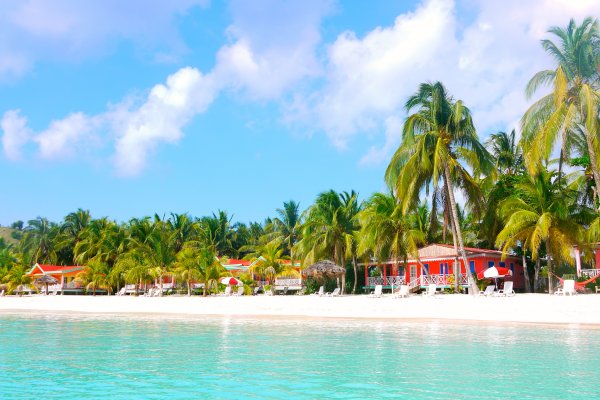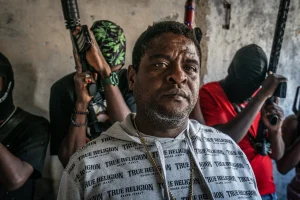
As Haiti’s government work on rebuilding tourism and bringing more business to the country, I feel like there’s always a conflict of who owns what. A few months ago I posted the story about the Haiti & Carnival Cruise Deal which came to a halt due to a 99-Year Lease with a Texas businessman name Grey Pierson.
So now the exciting development news of Île-à-Vache may not happen. According to Foreign Policy, Haiti’s central governments $260 million development project which included a plan for a new airport, a series of hotels, and an 18-hole golf course designed to turn Île-à-Vache into the Caribbean’s next tourism hot spot has come to a halt due to conflict between the government and local residents over ownership of the island’s land.
According to Foreign Policy,
Last October, an elderly couple watched a tractor plow over a grove of fruit trees and vegetables on the small Haitian island of Île-à-Vache. For decades, Mescary Mesura, 81, and his wife, Fanfan Clery Romany, 80, had harvested the grove, a 10-minute walk from their home, and sold the produce as their primary source of income. But that day, the island’s mayor, local police, and the tractor operator approached the octogenarians, informing them that the state required the land. “The police told us to stand there with our hands up,” Mesura said. “We … watched them finish off our garden.”
The grove is among the casualties of a $260 million development project planned by Haiti’s central government. It is designed to turn Île-à-Vache into the Caribbean’s next tourism hot spot. With an annual per capita GDP of lessthan $900, Haiti is one of the poorest countries in the world. Five years after a devastating earthquake that killed more than 200,000 people and caused some $8 billion in damage, Haiti’s leaders are banking on tourism to help buoy recovery and drag the nation out of poverty. The Île-à-Vache project is ground zero for these hopes. Wooing investors with tax breaks and the promise of internationally funded infrastructure upgrades, the government has developed a plan that includes a new airport, a series of hotels, and an 18-hole golf course.
But just two years after it began, the project has stalled. As of March, not one of the 2,500 hotel rooms anticipated by Haiti’s government has appeared. The stoppage is not for lack of commitment from Port-au-Prince: Haiti’s annual investment in travel and tourism is estimated to have jumped from 4.3 percent of the national budget in 2013 to 6 percent last year, according to the World Travel and Tourism Council. Rather, the Île-à-Vache project has been stymied by conflict between the government and local residents over ownership of the island’s land.
Haiti has a complex, bureaucratic land registry, as well as weak rule of law. It is very difficult for Haitians to prove a viable land title or get due process if their land is seized. On Île-à-Vache, Mesura and his wife are among the many residents who saw their property — land that they thought they owned — expropriated by the state in the initial phase of the development project. Frustrated that they weren’t being consulted about the seizures or about the tourism plans in general, residents sought to disrupt the project through a series of protests in December 2013. Since the conflicts over land erupted, private developers seem hesitant to break ground on the island, according to the mayor and one interested businessman. – Continue Reading on Foreign Policy website.





























